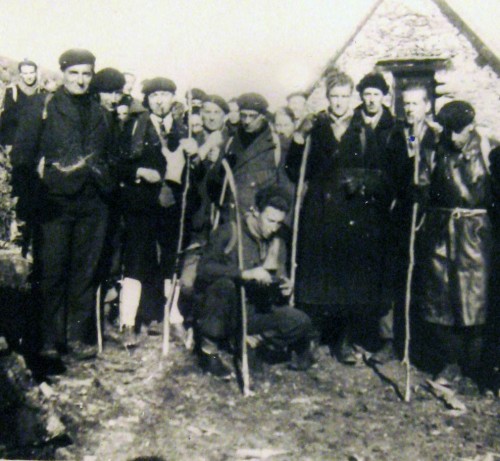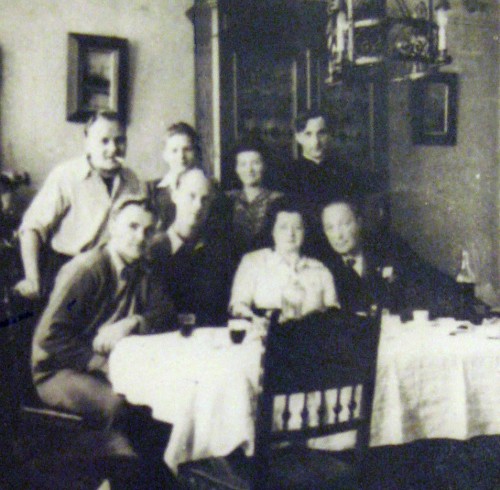Searching for the Dutch-Paris Escape Line
Let us pause for a moment on this 91st anniversary of the Armistice that halted the official slaughters of the First World War (1914-1918) to remember the men and women who have died in our battles over the last century and those who’ve lived the rest of their lives under the shadow of those battles.
It would take an entire semester to work out all that that first war unleashed – some good (female suffrage), most bad (Spanish Flu pandemic). The most notorious consequence, of course, was the Second World War (1939-1945).
Now that was a war that did not limit itself to the military for either fighters or victims. That was a war that compelled soldiers and civilians alike to great acts of courage. So among today’s photos of Marines at Iwo Jima, half-frozen snipers at Stalingrad and French girls kissing their American liberators, I’d like to add another.
Taken in January 1944, it shows a Dutch-Paris “convoy” on the final stage of its journey out of Occupied Europe: climbing the Pyrenees. To my knowledge, the photo shows the French guide (a member of Dutch-Paris); a Dutch priest; two American airmen (one from Boston and the other, a boxer, from California); a Polish RAF Spitfire pilot; a Dutch lawyer and a Dutch intelligence agent. The others are probably more downed Allied aviators and Engelandvaarders. The latter were Dutch men who so desperately wanted to join the British army to fight the German army that was occupying their homeland that they were willing to walk across Europe to get there or Dutch men or women who had been called to London by the government-in-exile, such as the priest and the lawyer. At the time, people considered 55 days between Amsterdam and London to be a quick trip.
Forget the hazards of traveling illegally through two foreign countries occupied by the Nazis to get to the mountains. It’s clear you had to be very desperate or very determined to cross the Pyrenees on foot in the dead of winter with enemy patrols on your trail and without any gear other than the food in your pocket. And with every expectation of being thrown in a Spanish prison once you crossed the border until whenever the Dutch consul in Madrid could get you out. Some made it; some died of injuries or German bullets. The guide died on his return trip back down the mountains. The Germans got him with a flamethrower as he was crossing a bridge.
And let us not forget the nominal civilians who helped those men get to their bases in England. The young women who escorted them on trams and trains. The older women who gave them a place to sleep and meals to eat. The conductors who advised them. The police who overlooked their irregularities of speech and documentation. Some survived; some died in concentration camps or of German bullets.
Let’s remember what they were fighting against. Let’s try to be the future of freedom and tolerance that they were fighting for.




Leave a reply